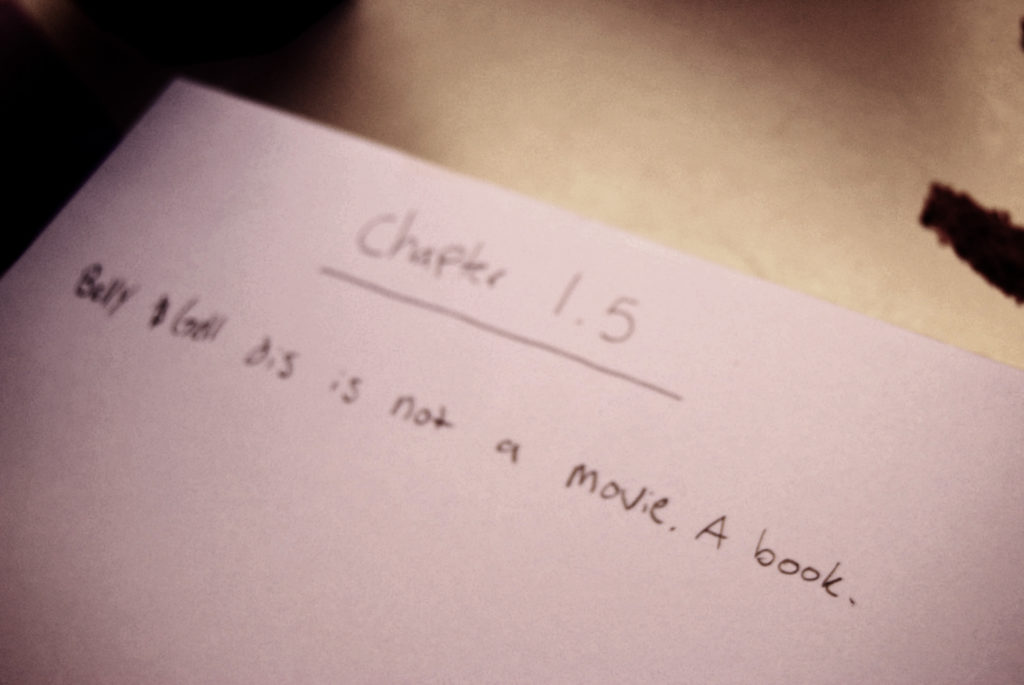During the summer between my first and second year in the Iowa Writers’ Workshop, I taught at the Iowa Young Writers’ Studio, a creative writing summer program for very talented and motivated high school students in Iowa City. I hoped that teaching would let me take a break from writing a long, unwieldy multi-generational immigrant novel that will turn into my MFA thesis. I’ve spent over five years teaching high school and college students, and I love it not only because it allows me to share my love for literature and creative writing with others, but also because it gives me a break from staring into the void of my laptop.
But beyond the reprieve from solitude and self-doubt, teaching creative writing to high school students this summer reminded me of what I care about as a writer and reader. I thought I was putting my own writing aside to help my students nurture theirs as they completed a variety of generative activities, such as making lists of things they are “experts” on and creating a character in one of those contexts, considering the places that are familiar to them and creating a conflict in one of those locations, starting stories with absurd first lines, and even being inspired by discarded items they found on the street. But looking back, I see that, no matter what class objectives were for the day, my own writing obsessions managed to sneak into my daily lessons without my notice. If I were to make a list of my own to include my own writing obsessions that we repeatedly discussed in the classroom, it would look like this:
Avoid gratuitous suspense. Let your readers know something as soon as your character knows it. Anyone who has ever read a mystery or thriller knows that suspense is compelling. However, a gripping story should hold the reader’s attention because of the way it is told, not just because of a series of plot revelations. I found that my students’ stories often relied on heavy suspense, plot twists, or disclosing missing information that led to a “big reveal” toward the end that changed the ultimate meaning of the stories. I’m familiar with the lure of this trap: in my novel, I have one character dying of guilt over the fact that she slept with her best friend’s father. I had originally strung out this discovery over 200 pages, but realized that my character probably would think of this fact the moment her best friend’s father comes up. Revealing this information earlier allowed my novel to breathe instead of straining to keep its secret. It took me a long time to understand that true suspense often lies not in what happened, but how. The story my class read to drive this point home was Michael Cunningham’s story, “White Angel,” where the narrator reveals that his brother is going to die in the first page of the story, leading the reader to keep turning pages to find out how this unfolded.
Give your reader enough information to move from one page of the story to the next, but not so much that the reader is weighed down. As I taught, I kept returning to an image I picked up from one of my teachers, Yiyun Li: “Think of your reader climbing up a mountain while he reads your story. He needs enough help to keep climbing up, but not so much that he is weighed down too much to keep going.” In class, we often spoke of “information dumping” – and how to avoid unloading all of the details you want the reader to know at once. The trick is to give your readers enough information to feel oriented as they move through your story without overwhelming them. Once again, this was something I struggled with in my novel, where I’d thrown in too many chapters of backstory about different characters because I felt as if the reader had to know everything about everybody to move forward. Eventually I saw that at multiple points, just a few paragraphs of summary would convey the necessary information and allow the plot to advance, even if the backstory had its charming moments.
The model for my high school students was Karen Russell’s story “St. Lucy’s Home for Girls Raised by Wolves.” It depicts an alternate universe where girls who were raised by werewolves are taken away from their parents to be civilized by strict nuns. The story is very high-concept and could easily have gotten buried in its own universe-building. Instead, the author reveals the stages of the school’s process in short, descriptive paragraphs lifted from a fictional manual. Russell presents small details when they are necessary for advancing the story, rather than suffocating the reader with minutiae of the world. I love teaching this story because it’s a coming-of-age story that most high schoolers can appreciate while also having a “magical realism” element instead of being told in a realist tradition; this is what I call a “weird” story in the classroom, and I make sure to include at least a few stories in this tradition when I teach to expose my students to a variety of literary traditions.
Humor is a powerful weapon; use it with caution. My students couldn’t resist a good joke, and most of the time, this strengthened their writing and made their work feel human and approachable. However, there were times when gratuitous humor undercut serious situations, rendering them difficult to interpret. This is something I struggle with as I work on my semi-comic novel; I can’t resist a good joke or a pun or ridiculous aside, even if it slows down the story or muddles the tone. For example, one of my heroines struggles with saying goodbye to a failed novel, and though I am tempted to make fun of her as much as I can, the many jokes I’ve offered at her expense often undercut her pain.
No one toes the line between hilarity and melancholy quite like Sergei Dovlatov in his story, “The Colonel Says I Love You,” which describes the somewhat autobiographical dissident writer narrator’s strange courtship of his future wife during the late period of communism in the Soviet Union, a time filled with distrust and absurdity for repressed writers. In class, we studied how Dovlatov moderates the humor and melancholy tone of every sentence, making sure every joke is on-point and somehow sad at the same time while moving the story forward . The humor feels consistently earned, not just there for the author to sneak in a quick jab. When the narrator asks his future wife, “You wouldn’t by any chance be employed by the K.G.B?” it is not only absurd and funny on its own, but also succeeds because it serves to illustrate how mysterious and unknowable he finds his companion. It makes the reader laugh at the situation while watching the narrator gain a deeper understanding of his future wife as she tells him she works in a beauty salon and is not spying on him; though his question is absurd, the situation of two people trying to understand each other is not.
Just keep going. You’re already so talented and the most important thing is that you don’t stop, because you will get better, even if you never feel like you’ve figured out how to write. There’s a perception that the creative process is a mystery, and on the one hand, that’s true. But on the other hand, it’s no mystery at all – it’s work. It took me years of writing and failing to see that, though not every story I write is better than the previous one, I am steadily improving as a writer. To drive this point home, I began my creative writing class by having the students look at Elizabeth Bishop’s masterful poem, “One Art,” along with the sixteen drafts that led to the final version. No matter how many times I read them, looking at these drafts always blows my mind and excites students because it shows that poems do not just emerge beautifully formed out of the ether, that Bishop is indeed human, and took many drafts to transform a stiff-sounding line like “The thing to do is to begin by ‘mislaying’” to the direct line, “Lose something every day.” My advice for students to simply “Keep going” usually gets more blank stares than the other advice because while concrete writing tips can be helpful, it’s more challenging to communicate how important it is to simply keep going, even when you’re feeling discouraged or like there’s no clarity in sight. But I try to stress it from the first day of class to the last, if only because those words are the ones I too need to hear more than any others.
Rules don’t mean much unless you keep going, no matter how hopeless it may seem.
•
 Maria Kuznetsova is an MFA candidate in Fiction at the Iowa Writers’ Workshop. Her fiction has received a Special Mention in the 2016 Pushcart Prize Anthology and appears or is forthcoming in The Iowa Review, The Florida Review, Ninth Letter, The Southeast Review,
Maria Kuznetsova is an MFA candidate in Fiction at the Iowa Writers’ Workshop. Her fiction has received a Special Mention in the 2016 Pushcart Prize Anthology and appears or is forthcoming in The Iowa Review, The Florida Review, Ninth Letter, The Southeast Review,

